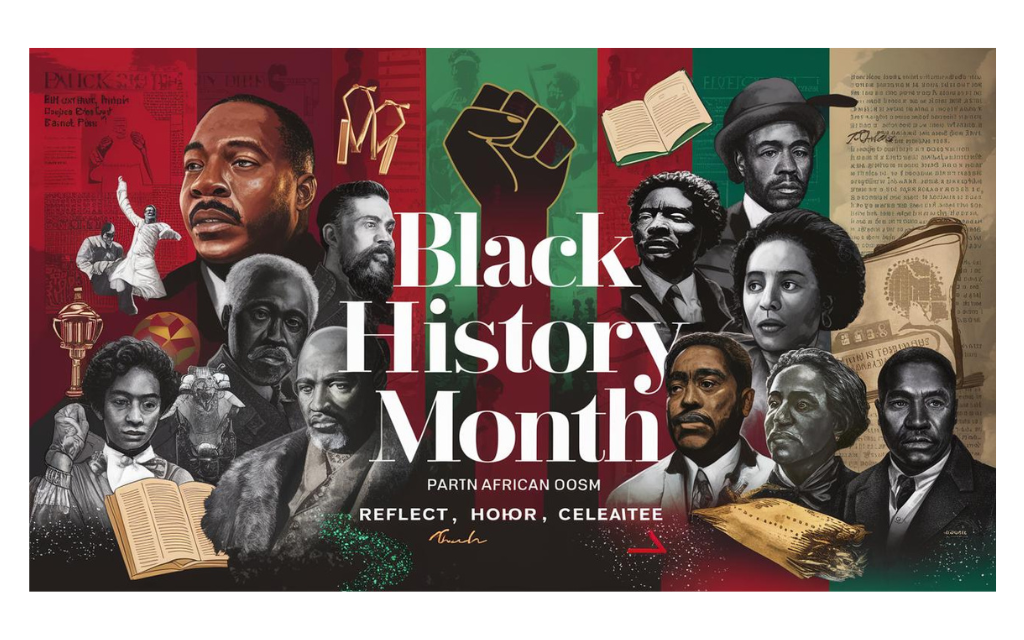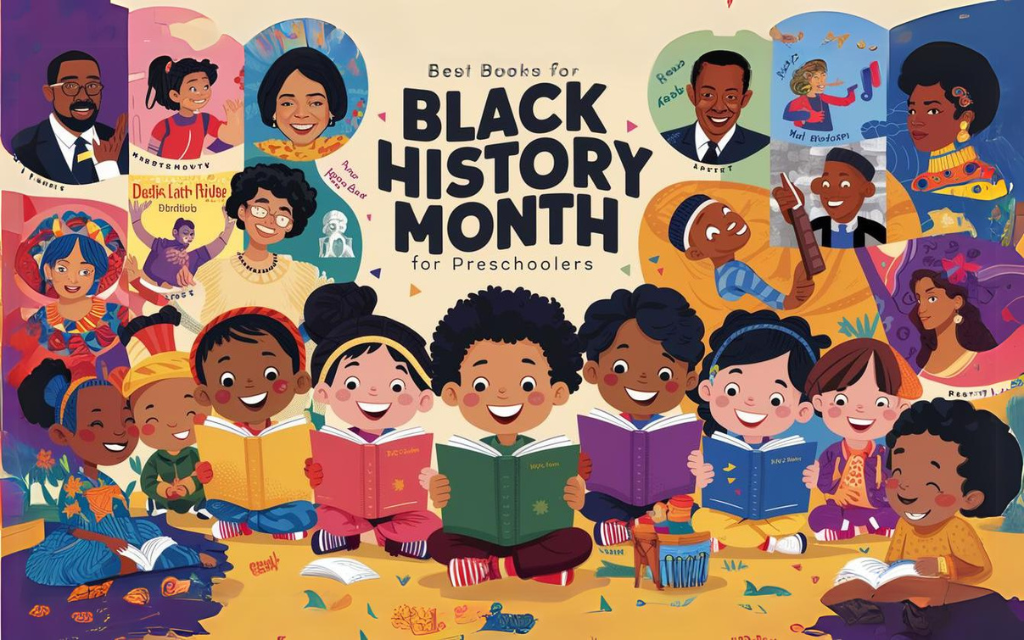February is a time to reflect, honor, and celebrate the achievements of black individuals throughout history. Black History Month serves as a crucial period for recognition and education about the impact of black heritage and culture. This month offers a unique opportunity to delve into the rich tapestry of contributions made by black leaders, artists, scientists, writers, and everyday heroes who have shaped our world.
In this guide, we provide actionable ways for students, history enthusiasts, and educators to engage in and commemorate this vital occasion. From participating in community events and attending lectures to exploring historical sites and reading works by black authors, there are numerous ways to honor this significant period.
We encourage schools to integrate black history into their curricula, not just in February but throughout the year, to foster a deeper understanding and appreciation of the diverse narratives that make up our collective history. Educators can utilize multimedia resources, invite guest speakers, and organize interactive projects to make learning about black history an enriching experience.
Moreover, individuals can take personal steps to celebrate Black History Month by supporting black-owned businesses, engaging in thoughtful conversations about race and history, and promoting social justice initiatives. By taking these actions, we can ensure that the legacy of black history is preserved and that its lessons continue to inspire future generations.
Join us in this comprehensive exploration and celebration of black history, as we work together to acknowledge the past, recognize the present, and build a more inclusive future.
Introduction
The significance of Black History Month cannot be overstated—it’s an opportunity to acknowledge the contributions of people of African descent and connect the past with ongoing efforts towards equality and justice. This observance serves as a pivotal reminder of the profound impact that African Americans have had on the cultural, social, and political fabric of our nation. It’s a time to celebrate the achievements of trailblazers who have broken barriers and paved the way for future generations.
Furthermore, Black History Month provides a platform for educating the wider community about the rich history and vibrant culture of the African diaspora. It encourages us to delve into the stories of those who have fought tirelessly for civil rights and social justice, often in the face of tremendous adversity.
It’s more than a month-long occasion; it’s a lens through which we can view history and social progress. This celebration invites us to reflect on the ongoing struggles for equality and to recognize that the fight against systemic racism and discrimination is far from over. By commemorating Black History Month, we honor the legacy of those who have come before us and reaffirm our commitment to building a more inclusive and just society. It’s a call to action to continue the work of dismantling oppressive structures and uplifting marginalized voices, ensuring that the contributions and experiences of Black individuals are recognized and valued year-round.
Educate Yourself
Learn about key figures and events in black history
Delve into the lives of remarkable individuals such as Martin Luther King Jr., Harriet Tubman, Frederick Douglass, and Rosa Parks. These figures have made significant contributions to history and have left a lasting impact on society. However, don’t stop at the well-known heroes; seek out stories of unsung influencers in various fields ranging from science to the arts. Explore the pioneering work of scientists who have made groundbreaking discoveries, artists who have pushed the boundaries of creativity, and activists who have fought tirelessly for justice and equality. By broadening your scope, you’ll gain a deeper understanding and appreciation of the diverse contributions that have shaped our world.
Read books, watch documentaries, and explore online resources
- Books: “The New Jim Crow” by Michelle Alexander, “Beloved” by Toni Morrison, and “Between the World and Me” by Ta-Nehisi Coates are just a few examples.
- Documentaries: “13th,” directed by Ava DuVernay, or “Eyes on the Prize,” a series on the civil rights movement.
- Online Resources: Websites like The Smithsonian National Museum of African American History & Culture offer a wealth of information.

Organize Events and Activities
Plan a movie night featuring films by black filmmakers
Select movies that delve into various aspects of black experiences to gain a deeper understanding and appreciation of their rich and diverse narratives. Some noteworthy titles to consider include “Moonlight,” which chronicles the life of a young black man grappling with his identity and sexuality; “Selma,” which depicts the historic civil rights march led by Dr. Martin Luther King Jr.; and “Hidden Figures,” which celebrates the incredible contributions of African-American women mathematicians at NASA during the Space Race. These films not only entertain but also educate and inspire viewers by highlighting the struggles, triumphs, and resilience of the black community.
Host a panel discussion or guest speaker event
Invite scholars, activists, or community leaders to speak on topics related to black history and present-day issues.
Create a black history trivia night
Make learning fun by challenging your friends or classmates to a game night centered around black history facts. You can create trivia questions, flashcards, or even a board game that highlights important figures, events, and achievements in black history. This interactive approach not only makes learning enjoyable but also fosters a sense of camaraderie and collective learning.
Additionally, consider participating in or arranging volunteering activities that support and uplift black communities. Volunteer at local organizations, participate in community clean-ups, mentor young individuals, or organize donation drives. These activities not only provide immediate help but also contribute to long-term positive change and empowerment within the community. By engaging in these efforts, you can make a meaningful impact and demonstrate solidarity with black communities.
Organize a community service initiative
Participate in or arrange volunteering activities that support and uplift black communities.

Promote Awareness and Inclusion
Share educational content on social media
Utilize platforms like Instagram, Twitter, or Facebook to distribute facts, quotes, and stories that amplify black voices.
Advocate for diverse curriculum in schools
Encourage schools to integrate black history into the curriculum throughout the entire year, rather than limiting it to just the month of February. By doing so, we can ensure a more comprehensive and continuous education on the important contributions and experiences of black individuals. This approach helps to foster a deeper understanding, appreciation, and respect for black history and culture among students, ultimately promoting inclusivity and diversity in education.
Support black-owned businesses and artists
Make an effort to purchase from and collaborate with black entrepreneurs and creatives.

Engage in Dialogue
Foster conversations about black history and its significance
Use this month as a springboard for in-depth discussions on the significant progress we’ve made so far in the realm of racial equality. Celebrate the milestones reached and the strides taken by individuals and communities alike. However, it is equally important to acknowledge and address the substantial work that still remains to be done. We must continue to advocate for systemic changes, support policies that promote inclusivity, and engage in ongoing education and dialogue to dismantle the barriers that persist. Only through sustained effort and collective commitment can we hope to achieve true and lasting racial equality.
Encourage open discussions about racial equality and social justice
Create safe spaces where individuals can share their experiences and learn from one another.
Conclusion
While Black History Month is a designated period to celebrate and educate, the spirit should extend beyond the confines of February. Strive to infuse the lessons learned and appreciation gained throughout the month into everyday life. Let’s commit to a continuous journey of learning, celebrating, and advocating for a just society where diversity is not just acknowledged but celebrated.
Remember, history is made every day, and each one of us has a role to play in shaping a future that reflects the ideals of equality and inclusion we commemorate during Black History Month.






1 thought on “How to Celebrate Black History Month: A Guide for Students, History Enthusiasts, and Educators”